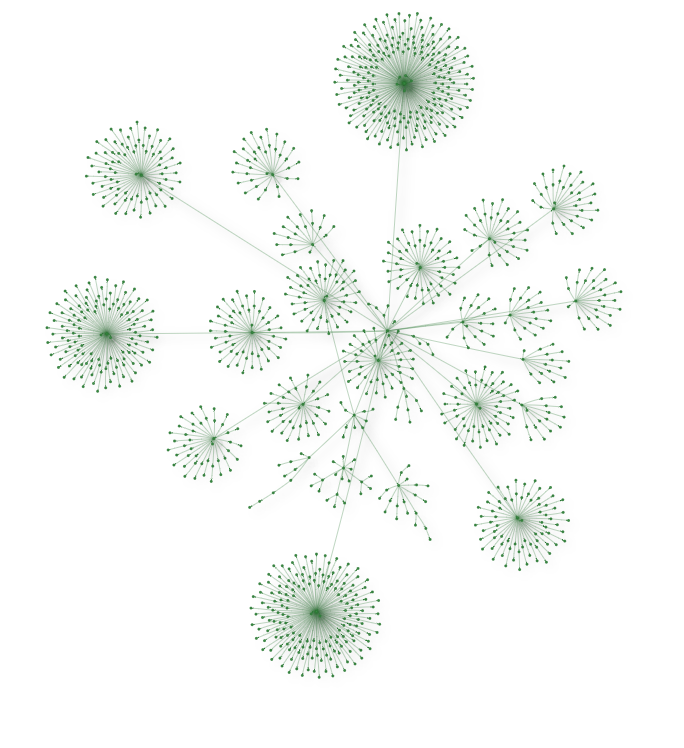Used CogDB to describe a folder hierarchy. Easier than figuring out how to annotate recursive structures for Mypy.
I got some weird ideas of hard vs easy.

Okay fine. Here's a cleaned-up version of the code looking at my main blog Markdown sources.
from dataclasses import dataclass, field
from pathlib import Path
from typing import Dict, Set
from cog.torque import Graph
@dataclass
class Folder:
root: Path
pattern: str
graph: Graph = field(init=False)
files: Dict[str, str] = field(init=False)
graph_paths: Set[str] = field(init=False, default_factory=set)
def __post_init__(self):
self.graph = Graph("files")
self.__load_files()
def __load_files(self):
self.files = {}
for path in self.root.glob(self.pattern):
self.load_path(path)
def graph_path_for(self, path: Path) -> str:
# some funkiness because this started on windows
return "/".join(path.relative_to(self.root).parts)
def load_path(self, path: Path):
graph_path = self.graph_path_for(path)
self.files[graph_path] = "FILLER"
self.graph_paths.add(graph_path)
self.place_graph_path(path)
def place_graph_path(self, path: Path):
if path == self.root:
return
parent = path.parent
graph_child = self.graph_path_for(path)
graph_parent = self.graph_path_for(parent)
self.graph_paths.add(graph_parent)
self.graph.put(graph_parent, "parent", graph_child)
self.place_graph_path(parent)
if __name__ == "__main__":
root = Path("~/Sites/rgb-hugo").expanduser()
folder = Folder(root, "**/*.md")
url = folder.graph.v().tag("from").out("parent").tag("to").view("parent").url
print(url)
Aside from the pretty picture, the nested structure that is now a graph helps me pull some files into Logseq for better notes.
ooh i could pull my site into logseq
Go to bed, Brian.